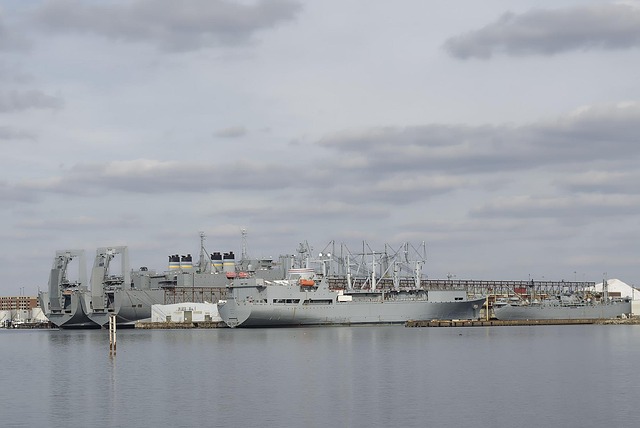Specialized Equipment Powering Baltimore’s Port and Logistics Success: The Role of Rough Terrain Forklifts
The Port of Baltimore, the 11th largest port in the United States for international cargo, is an economic powerhouse that drives the region’s trade, job creation, and overall economic growth. As one of the busiest and most versatile ports on the East Coast, the logistics and operations behind the port require specialized equipment to meet the unique challenges of its constantly evolving environment. Among the most crucial pieces of machinery supporting port operations are rough terrain forklifts — versatile, rugged machines that are instrumental in maintaining the flow of goods and materials.
The Port of Baltimore: An Economic Engine for the Region
The Port of Baltimore is integral to the economic vitality of Baltimore and Maryland at large. According to the Maryland Port Administration, the port handles approximately 10 million tons of cargo annually, contributing over $3 billion to the state’s economy each year. Beyond the cargo handled, the port directly supports over 15,000 jobs in the area, and its operations ripple out to impact tens of thousands more in related sectors such as warehousing, transportation, and manufacturing. This dynamic ecosystem demands the very best in logistical support to ensure efficient and reliable operations.
The Challenges of Port Logistics
Port logistics are unique in their complexity. The conditions at the port can change rapidly due to weather, tides, and cargo variations. Ships arriving with diverse types of cargo — from bulk goods to heavy industrial machinery — necessitate specialized handling equipment that can adapt to different surfaces, cargo types, and environmental conditions.
One of the primary challenges is the rough and uneven terrain surrounding many parts of the Port of Baltimore. From open docks to less developed areas, operators often navigate through mud, gravel, and harsh weather conditions. This is where rough terrain forklifts become indispensable. Visit here for more details vallee.ca
How Rough Terrain Forklifts Tackle Port Challenges
Rough terrain forklifts are designed to handle exactly these types of challenges. Their robust construction, high ground clearance, and large, durable tires allow them to traverse uneven surfaces with ease, making them ideal for port operations where smooth, paved pathways are a rarity. These forklifts are not only versatile but they also provide the necessary stability and lifting power to move heavy, awkward, or oversized cargo.
For example, containerized cargo, which often includes goods packed in shipping containers, can be heavy and difficult to maneuver. Rough terrain forklifts are able to lift these containers and transport them safely and efficiently to their designated areas, whether on a dock or in a warehouse.
In addition, bulk materials like coal, grain, and chemicals — which are frequently handled at the port — require forklifts that can lift large quantities of goods and move them across various terrains. Rough terrain forklifts are specifically built for these heavy-duty tasks often equipped with large forks and extended lifting heights to carry pallets or large crates.
On a typical day at the Port of Baltimore, rough terrain forklifts may be seen lifting materials from ships that dock in the harbor, moving them through muddy, unstable ground, or placing them in outdoor storage areas where the conditions can be harsh.
Connecting Port Efficiency to the Local Economy
The Port of Baltimore’s ability to manage millions of tons of cargo each year is a direct result of its highly efficient logistics operations, which rely on specialized equipment, including rough terrain forklifts. By ensuring that goods are moved quickly and safely, the port remains competitive and keeps costs low, which ultimately benefits local businesses, consumers, and the entire regional economy.
John Smith, a logistics professional with over 20 years of experience in port operations, notes, “Without the right equipment, like rough terrain forklifts, the port would face significant delays, which could ripple through the supply chain and negatively impact the economy. It’s not just about moving goods; it’s about moving them in the most efficient way possible.”
The port’s success, powered by machinery like rough terrain forklifts, extends beyond just shipping companies. Thousands of local jobs depend on the port’s efficiency, from warehouse workers to longshoremen and truck drivers. In addition, the ability to move large volumes of goods quickly and safely is critical to meeting the demands of global trade.
A Trusted Provider for Port Equipment Solutions
As a leading provider of heavy-duty equipment, including rough terrain forklifts, Vallée has been proud to support the Port of Baltimore’s operations. Our forklifts are designed to meet the demanding needs of the port, offering reliability, safety, and performance in the toughest conditions.
Whether it’s moving bulk materials across gravel-strewn yards or lifting containers onto waiting trucks, our equipment ensures that the Port of Baltimore remains operational 24/7. With decades of experience in supplying industry-leading forklifts, we understand the importance of specialized machinery to keep the port running smoothly and efficiently.
For businesses operating within Baltimore’s logistics sector, having the right equipment partner is essential for sustaining growth, driving innovation, and maintaining a competitive edge. At Vallée, we are committed to providing the best forklifts for the job because when it comes to port logistics, every second counts.

